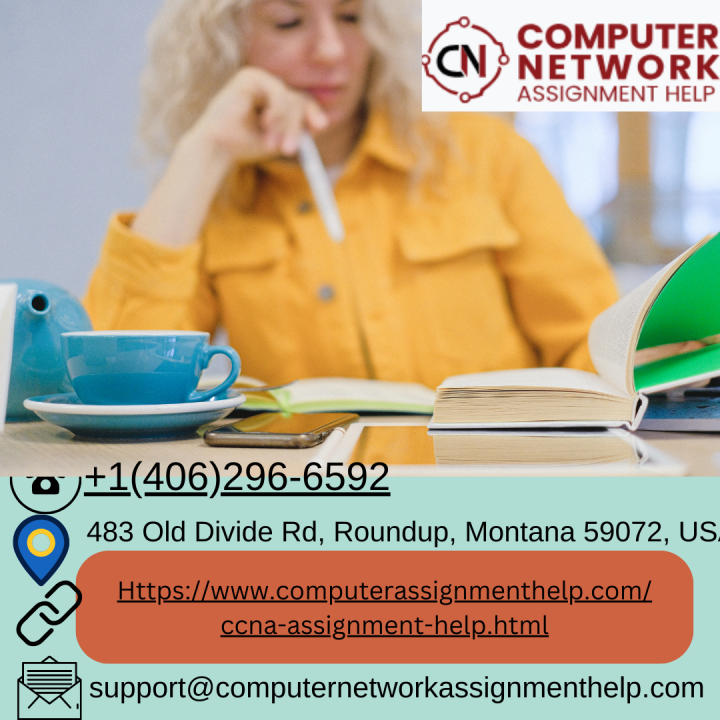
Today, we have the privilege of engaging in a detailed conversation with Sarah Thompson, a seasoned CCNA Assignment Help expert at computernetworkassignmenthelp.com. Sarah has been a stalwart in the field of computer networking education, guiding students through the intricacies of CCNA assignments. Let's delve into her insights on the art of crafting impeccable CCNA assignments.
Q1: Can you tell us about your background and experience in the field of CCNA assignment help?
Sarah: Absolutely! I have a solid background in computer networking, having worked in the industry for over a decade. My experience ranges from hands-on network management to teaching CCNA courses. I've been assisting students with their CCNA assignments for the past five years, helping them grasp complex concepts and excel in their coursework.
Q2: What common challenges do students face when tasked with CCNA assignments?
Sarah: Students often encounter challenges in understanding intricate networking protocols and configurations. CCNA assignments require a deep understanding of networking fundamentals, and many students find it challenging to bridge the gap between theoretical knowledge and practical application. Additionally, time constraints and the pressure to deliver high-quality work contribute to the difficulties.
Q3: How do you approach assisting students who come to you with the request, "Do my CCNA assignment"?
Sarah: When a student seeks help with their CCNA assignment, the first step is to understand their specific concerns and knowledge gaps. I assess their familiarity with the assignment topic, troubleshoot their difficulties, and guide them through the thought process required for the solution. It's not just about providing answers; it's about empowering students to comprehend and apply networking principles.
Q4: What strategies do you employ to ensure the assignments you assist with are of top-notch quality?
Sarah: Quality is paramount in CCNA assignments. I emphasize a comprehensive approach, starting with a thorough understanding of the assignment requirements. Clear and concise explanations, coupled with practical examples, are key. I encourage students to simulate real-world scenarios to strengthen their problem-solving skills. Additionally, staying updated with the latest industry trends ensures that the content is not only accurate but also relevant.
Q5: How do you balance providing assistance with CCNA assignments while encouraging independent learning among students?
Sarah: Striking the right balance is crucial. While I guide students through challenging concepts, I always stress the importance of independent learning. I provide resources, recommend study materials, and encourage them to explore beyond the immediate scope of the assignment. The goal is to foster a sense of curiosity and self-sufficiency in tackling complex networking issues.
Q6: Can you share a success story where your assistance significantly impacted a student's understanding of CCNA assignments?
Sarah: Absolutely. I had a student who was struggling with subnetting concepts. Through personalized guidance and hands-on exercises, the student not only aced the assignment but also gained a profound understanding of subnetting. They later expressed gratitude for the clarity I provided, stating that it boosted their confidence in tackling advanced networking challenges.
Q7: How do you stay updated with the evolving landscape of CCNA and networking technologies?
Sarah: Continuous learning is non-negotiable in this field. I regularly participate in professional development programs, attend industry conferences, and engage with online forums. Staying connected with the broader networking community and exploring emerging technologies ensures that my assistance remains cutting-edge and relevant.
Q8: Any tips or advice for students seeking help with their CCNA assignments?
Sarah: Certainly. First and foremost, don't hesitate to seek help when needed. Networking can be complex, and collaboration is a powerful tool for learning. Practice consistently, use real-world scenarios to reinforce concepts, and don't shy away from exploring beyond the curriculum. Finally, take ownership of your learning journey; the more you invest, the more confident and proficient you'll become.
Conclusion:
Our conversation with Sarah Thompson has provided valuable insights into the world of CCNA assignment help. Her dedication to empowering students and fostering a deep understanding of networking principles is truly commendable. As students continue to navigate the challenges of CCNA assignments, experts like Sarah play a pivotal role in shaping their success.